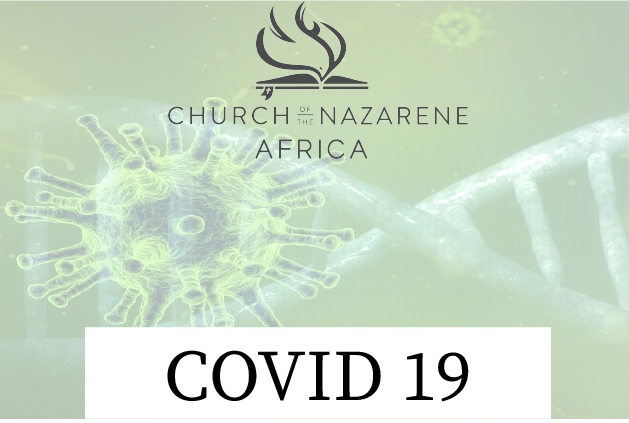Written by: Rev. Dr. Gabriel Benjiman
The earliest records of ancient faith communities give the Bible reader a glimpse into how religious communities worked with God to overcome the spread of disease. The faith communities gathered in large numbers as they grew around wet-point settlements. The formation of new cities made people vulnerable to various forms of contagion due to close living conditions. In ancient times there were no sophisticated systematic sciences- (hospitals, laboratories, or medical consultants). God often inspired His gathered people (in the Judeo-Christian world) through the priests and prophets to cast vision and implement laws that protected His people from the spread of bacterial and viral disease and even pestilence. God issued rules and ceremonial practices that, when adhered to, prevented the spread of disease and demonstrated a heart of obedience. God’s laws offered both spiritual and practical benefits for humanity.
Levitical laws prohibited the wet market slaughter of sick animals (God ‘demanded’ only the best and healthiest animals- for our benefit). Such laws were, among other holy things, a practical measure of disease control. It was a way of limiting the possible transference of contagious diseases between animals and humans. In a way, God was saying that He remained the ultimate healer. He was our cure, yet prevention is better than cure. In some ways prevention is about obedience. Cure is grace in damage control mode. The handling of corpses or carcasses were also religiously and strictly regulated so as to prevent disease. The outcomes of careful adherence to these laws and practices would have saved whole communities. This was God’s love manifest as a “preventing grace”.
Ceremonial baths were compulsory to remind humanity of the importance of good hygiene and health (for ‘God’s sake’? No, actually it was God expressing His love for our wellbeing). Obedience to God in deeply spiritual ways resulted both in spiritual cleansing and good physical health. God was regulating humankind’s exposure to possible diseases when He commanded certain practices by setting them into law.
In the absence of humankind’s scientific development, it was this spiritual separation and sanctification that protected whole communities. It required good hygiene practices, albeit ceremonial. Priests were required to sacrifice the animal fat to God; in doing so, it averted poor heart-health crises. The consumption of certain meats was prohibited. In light of the limited scientific development of meat curing processes, people were prohibited from eating specific cuts of meat. God was practicing science through religion to express His love by healing and saving His people.
Religious concepts vital for our spiritual wellbeing expressed the importance of separation. The basic understanding of sanctification is separation. Separation from the unholy influencers or points of temptation was for the good spiritual health of God’s people. On a more physical level for practical disease, a kind of social separation (quarantine) was exemplified in the leprosy laws. God worked with His people to implement these scientifically, hygienic practices couched in the language the people best understood in their contexts and time. God used the language of religion because it touches both spiritual and physical wellbeing. Healthy eating and cleansing practices were good for the spirit and the body. The washing of feet and hands often expressed care for each other’s’ health, which in turn guaranteed community wellbeing.
The Church continues to serve the role of hearing from God to bring people together and when necessary, to keep people apart for their safety. An example of this would be the Passover. The families that were covered under the blood of the lamb were still isolated in their own homes. It is in these times of apartness that we, the Church can teach one another that our understanding of togetherness transcends physical contact. We can be apart and still be together in heart and Spirit. Our role apart from preparing people to live in Holy love and obedience is to keep communities safe and healthy.
“Leaders ought to be careful about saying too much or little in these times.”
The Church (“called-out-ones”) has always been responsible for discerning or identifying fake news. This is important work. The Church has been entrusted with proclaiming good news in times of trouble. Discerning of untested reports is a great responsibility for the faith community. The Church is called to deliver accurate education and to help the masses to abide by laws that keep us all safe in spirit and body. The calling to be hope proclaimers and truth advocates is a spiritual discipline. It calls for radical action from the people of God. Leaders ought to be careful about saying too much or too little in these times. We are called to speak only what God gave through wisdom and understanding. We must combine the truth about good spiritual practices, which saves the soul with physical health practices that are scientifically endorsed that also preserve the health of the individual and community alike.
God’s people continue to bring knowledge, understanding, and sanctification of spirit that also benefits and preserves the body. Holiness is wholeness. Holy love preserves and safeguards those who follow the Father’s guidance.
Let us continue to work with God in ways that will result in “the God of Peace crushing evil under our (humankind’s) feet.” Romans 16:19-20.
16/3/2020





